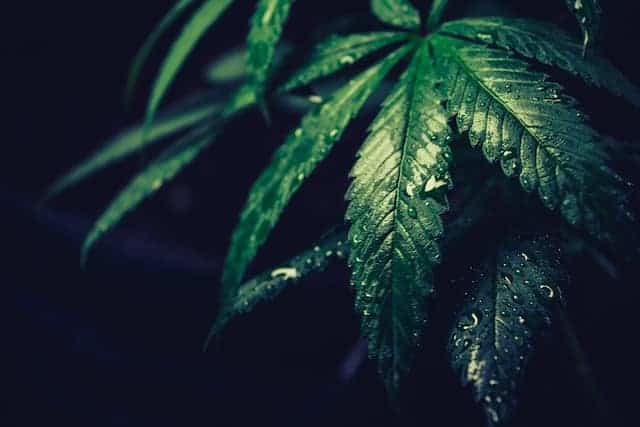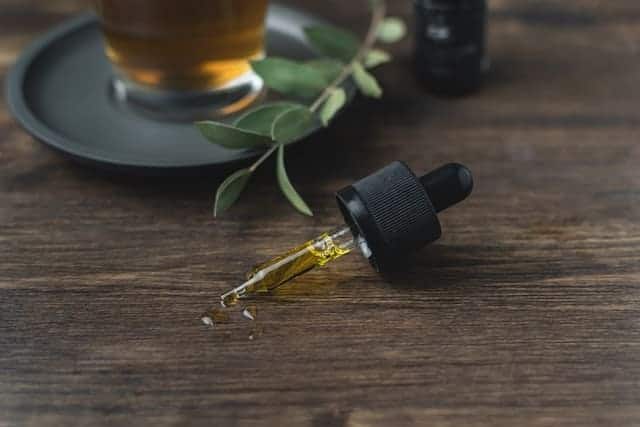Whenever people see “THC,” their minds instantly think of “high times” and munchies. However, in some instances, you could find a THC-related molecule with zero psychoactivity. In fact, if you didn’t expose cannabis to heat and light, it wouldn’t have a psychoactive effect on your body.
How is this possible? It all has to do with a lesser-known cannabinoid called tetrahydrocannabinolic acid (THC-A). Interestingly, THC-A is the precursor to the infamous delta-9 THC. Despite THC-A’s close relationship with weed’s top THC compound, it’s worlds away in terms of effects. Even if you’re more interested in CBD hemp, it’s worth knowing the distinctions between THC-A vs. delta-9 THC.
How Could THC-A Not Get People “High?”
Most of the cannabinoids we’re familiar with aren’t naturally present in raw cannabis plants. Whether you’re talking about marijuana or hemp, the cannabinoids in flowering plants are usually in an “acidic” state. After manufacturers heat cannabis buds, these acidic cannabinoids transform into compounds like CBD, CBG, or delta-9 THC.
Although these acid-based cannabinoids are related to the compounds they’re named after, they don’t have the same chemical structure. Also, acidic cannabinoids tend to have a lower bioavailability versus their “activated” versions.
In the case of THC-A, most scientists claim it’s significantly larger than delta-9 THC. This may be the primary reason THC-A shows a weak affinity with our brain’s CB1 receptors. The THC-A particles are too big to lock with our endocannabinoid system, which means they can’t produce a “high” sensation.
Does This Mean THC-A Is Illegal?
Just because THC-A doesn’t produce psychoactive effects doesn’t mean it’s legal in the USA. Indeed, compared with other hemp-derived THC molecules like delta-8, THC-A is in a more precarious legal situation.
Even though THC-A has minimal psychoactive properties, it’s easy for Americans to heat THC-A products and produce activated delta-9 THC. Therefore, THC-A always has the potential to become delta-9, and that’s very problematic for US lawmakers.
True, a few hemp companies offer “sneaky” delta-9 THC products that meet the 2018 US Farm Bill’s standards. Often, these edibles have just below the ≤ 0.3 percent THC limit compared to the product’s total weight. However, these items remain in a legal gray area — plus, they usually don’t concentrate on non-psychoactive THC-A.
In the current legal climate, the only people who could legally purchase THC-A items are in states with relaxed recreational weed laws. Everyone else should wait until the federal government changes its stance on delta-9 THC before shopping for THC-A.
Are There Any Positives For Taking THC-A?
If THC-A has none of delta-9’s effects, you may be wondering what’s the point of using this cannabinoid. According to a few recent trials, THC-A may have many unique therapeutic uses with minimal side effects. There are already trials that suggest THC-A has potent anti-inflammatory and neuroprotective effects. Some scientists also believe THC-A could potentially help with disorders like fatty liver, diabetes, and obesity.
Another benefit of THC-A is that it doesn’t provoke psychoactive side effects. While this isn’t good news for people who want to get “high,” it may be a massive benefit for those who can’t tolerate THC but want the benefits of medicinal cannabis.
While all of these findings on THC-A are exciting, please remember they’re preliminary. It will take time before doctors fully understand how THC-A benefits people.
How Can You Check For THC-A In Hemp?
Hemp customers will often see “delta-9 THC” on lab reports for CBD extracts, topicals, and edibles. However, people who enjoy CBD hemp flowers and pre-rolls should see THC-A alongside CBD-A in third-party lab results. Remember that the cannabinoids in raw cannabis are acidic, so they won’t “activate” until you light them or put them in a vaporizer.
Please always check to ensure these THC or THC-A levels are below ≤ 0.3 percent before buying a CBD product. If you need help deciphering a CBD company’s lab results, we’d encourage you to read Real Tested CBD’s FAQs.
Most Recent Tested products

















Leave a Comment